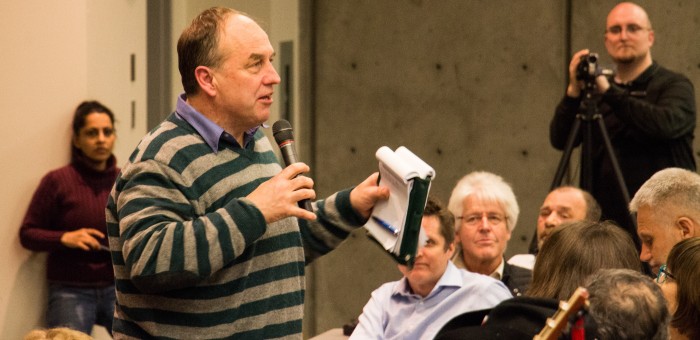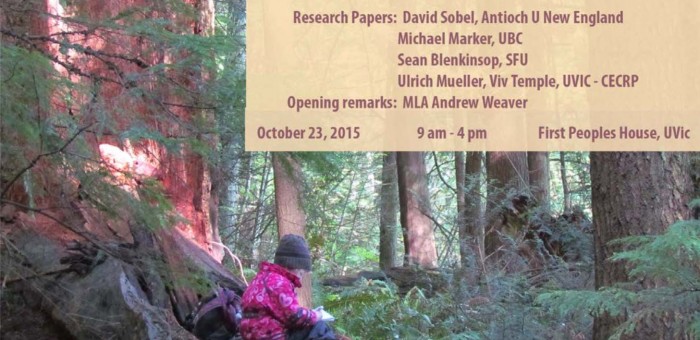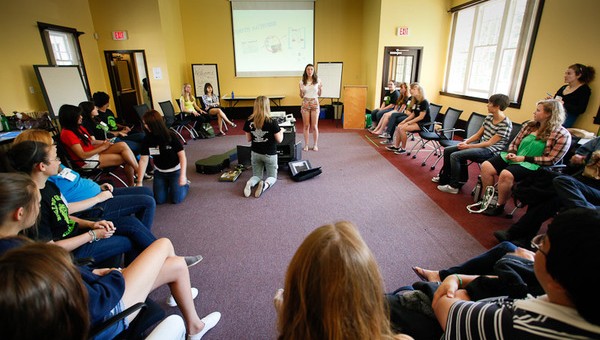Children and Family
65,721 Signatures and Counting – No More MSP Head Tax
Today in the legislature I presented a petition by 65,721 British Columbians, started by Michelle Coulter in Ucluelet. The petition calls on government to abolish BC’s regressive approach to collecting MSP premiums and switch instead to a progressive system. As the petition states, “BC should follow the lead of other provinces in eliminating its flat-rate MSP premiums.”
Earlier this year I renewed my call to eliminate MSP premiums and pointed out that we don’t have to look far for alternatives. British Columbia should follow the path taken by Ontario in 2004 when they introduced the Ontario Health Premium (OHP), and rolled it into their income tax system.
In Ontario if you earn $20,000 or more a year you pay the OHP. It ranges from $0 if your taxable income is $20,000 or less, and goes up to $900 per year if your taxable income is more than $200,600. Instead of the mail-out system we have in BC, the OHP is deducted from the pay and pensions of those with employment or pension income that meets the minimum threshold. The full range of premium rates in Ontario for those at different incomes can be viewed here.
Remember – only Ontario’s top earners are paying $900 per year. Right now people in British Columbia are paying $900 a year regardless of whether they earn $30,000 or $3,000,000 a year.
Below are the text and video of my introduction of the petition. I also append a copy of the media release associated with it.
Petition Introduction Text
It gives me great pleasure to present a petition with 65,721 signatures from people across British Columbia calling on the government to abolish B.C.’s regressive approach to collecting MSP premiums. As the petition states, B.C. should follow the lead of other provinces in eliminating flat-rate MSP premiums
Petition Introduction Video
Media Release
Media Release: February 11, 2016
Andrew Weaver presents MSP petition with 65,721 names
For Immediate Release
Victoria, B.C. – Andrew Weaver, Leader of the B.C. Green Party and MLA for Oak Bay-Gordon Head, tabled a 65,721 signature petition in the legislature today calling on the government to eliminate B.C.’s regressive ‘one-size-fits-all’ approach to collecting MSP premiums.
“It is clear that too many British Columbians are struggling with the fixed and increasing cost of MSP Premiums in this province. It is a regressive fee that is hurting those who can least afford it,” said Weaver.
The petition, created by small business owner Michelle Coulter from Ucluelet, B.C., was started in December and has received widespread support from across the province.
“Right now whether you make $30,000 or $3,000,000 annually in you are paying $900 a year,” said Weaver. “In Ontario, only the top earners making more than $200,600 are paying this rate.”
The B.C. Green Party has proposed the introduction of a progressive system in which rates are determined by one’s earnings, mirroring the model used in Ontario. Rolling MSP premiums into the existing income tax system would allow the fee to be graduated and lead to a significant net administrative savings to taxpayers.
“The B.C. Government takes almost as much revenue from MSP Premiums as it does from corporate income tax,” said Weaver. “It’s time we followed the path Ontario has taken and rolled the MSP Premiums into our income tax system.”
In 2004 the Ontario government introduced the Ontario Health Premium (OHP), and incorporated it into their income tax system. In Ontario if you earn $20,000 or more a year you pay the OHP. It ranges from $0 if your taxable income is $20,000 or less, and goes up to a maximum of $900 per year if your taxable income is more than $200,600. Instead of the mail-out system we have in B.C., the OHP is deducted from the pay and pensions of those with employment or pension income that meets the minimum threshold.
“The government’s recently announced change for single parent families is a step in the right direction but doesn’t go far enough to help numerous British Columbians who cannot afford the increases,” said Weaver. “If the government is serious about easing the burden it is placing on low and fixed income British Columbians, then they need to properly fix the way MSP premiums are collected.”
-30-
Media Contact
Mat Wright
Press Secretary – Andrew Weaver MLA
Cell: 250 216 3382
Mat.wright@leg.bc.ca
Twitter: @MatVic
Lack of Poverty Reduction Plan in British Columbia Unacceptable
Media Statement: December 10, 2015
Andrew Weaver: Lack of Poverty Reduction Plan in British Columbia Unacceptable
For Immediate Release
Today, Andrew Weaver, MLA for Oak Bay Gordon Head and Leader of the BC Green Party, reiterated his call for the Provincial Government to develop a comprehensive strategy to end poverty in our province. British Columbia is now the only Province without a poverty reduction plan, yet is projected to have the fastest growing economy in the country.
“It is unacceptable that in a province with an economy as strong as ours that we are the only ones neglecting our responsibility to our citizens who are struggling to afford the cost of living,” said Andrew Weaver.
An October 2015 report by Citizens for Public Justice showed British Columbia had a 16.3% overall poverty rate and was the only province left that had not advanced a poverty reduction strategy. CIBC World Markets released a report in November predicting British Columbia would lead the country in terms of economic growth in 2016.
In response to the tent community on the lawn beside the Victoria Law Courts, the government has pledged more money for a new shelter in the region, and that campers would be asked to leave if they didn’t accept the province’s offer of housing. The Premier also suggested that the best way to fight poverty was to let the economy grow.
“This is what is wrong with our poverty reduction policy in British Columbia,” said Andrew Weaver. “We have a government that advances short term solutions like shelters, while suggesting for years that we need to wait for our economy to grow before we can take real action. Now we have the fastest growing economy in the country and we still haven’t advanced a plan.”
Other jurisdictions are finding ways to address poverty issues while saving the government money. Housing-first poverty strategies have been one of the foundational aspects of poverty reduction plans in Utah, Denver, Medicine Hat and a growing number of other jurisdictions. This approach recognizes housing insecurity as a key systemic issue contributing to poverty and shifts from emergency management of homelessness, to providing homes for those who need them. By addressing this issue head-on, rather than through a patchwork of services, government costs are ultimately reduced.
“A good place for a poverty reduction plan to start would be addressing the difficulties British Columbians are having finding affordable and supportive housing,” said Andrew Weaver. “This isn’t an either or – we need to continue to develop a strong economy, while ensuring that British Columbians aren’t being left out in the cold.”
-30-
Media Enquiries:
Mat Wright
Press Secretary – Andrew Weaver MLA
Cell: 250 216 3382
Mat.wright@leg.bc.ca
Twitter: @MatVic
Parliament Buildings
Room 027C
Victoria BC V8V 1X4
Bill 41 — Miscellaneous Statutes Amendment Act (No. 3), 2015
Today in the legislature I rose to speak at second reading on Bill 41, Miscellaneous Statutes Amendment Act (No. 3), 2015. Bill 41 proposed amendments in four general areas:
- Advanced Education
- Children and Family Development
- Energy and Mines
- Justice amendments
I generally spoke in favour of the amendments with notable caveats that I will explore further tomorrow at Committee stage. Below are the text and video of my speech.
Text of my Speech
A. Weaver: I rise to speak to Bill 41, Miscellaneous Statutes Amendment Act (No. 3), 2015. It’s another one of the miscellaneous statutes acts, this one with amendments in four different areas — the first, of course, being Advanced Education amendments that my colleague from Victoria–Swan Lake discussed recently. Part 2 is Children and Family Development amendments; part 3, Energy and Mines amendments, specifically with respect to BCUC; and part 4, Justice amendments.
This bill actually covers a rather large number of bills within the four categories: the Child, Family and Community Service Act; the College and Institute Act; the University Act; the Interjurisdictional Support Orders Act; and the Utilities Commission Act.
The amendments clarify a few definitions and generally expand regulatory and exemption powers for the Lieutenant-Governor-in-Council or, in the case of the Utilities Commission Act, the minister assigned in the place of the Lieutenant-Governor-in-Council. This amendment bill seems to follow a pattern of a rather large number of these bills we’ve seen this year where the legislation is made somewhat increasingly vague and left up, often, to the discretion of the appointed minister or regulator.
With respect to the Child, Family and Community Service Act, the amendments are said to enable the expansion of the agreements with young adults program, allowing the Ministry of Children and Family Development to extend the duration of agreements and raise the age limit. Now, this is important. This is an important piece of legislation that is dealing with the transition of youth from the ages of 18 to 19 who often fall between the cracks as they move from being a child to an adult. Being able to allow the…. The amendment will allow and enable agreements to be used for life skills programs, in addition to the current educational, vocational and rehabilitation programs, meaning that children will be able to transition better.
I was speaking this last Saturday with an RCMP officer from the Victoria region, out on the West Shore, who said that the single most common call they get are calls with respect to adolescent mental health issues. Now, part of the problem, of course, is that these adolescents who move into adulthood fall between the cracks after they age out. This legislation allows ministries to actually coordinate — extend the coverage — under Children and Family Development, and it’s a very fine piece of legislation that I’m very proud to support.
On the same note, the changes to the Interjurisdictional Support Orders Act add further amendments that I’m very pleased to support. In particular, the changes will allow for child and spousal support decisions from other provinces and territories and countries to be more efficiently processed. The administrative changes will allow support order decisions from jurisdictions that do not provide court-certified copies of decisions, such those reached by tribunal, to be registered with the B.C. court. In addition, instead of using the court sheriff services to serve applications for support from other jurisdictions, the director of maintenance enforcement will now use a private process server.
Out-of-province support orders are often hard to collect and said to account for about 11 percent of family maintenance enforcement program cases. So again, an important piece of legislation within the broader Miscellaneous Statutes Amendment Act.
Then we move to the Utilities Commission Act changes. Now, the member for Vancouver-Kingsway — I believe it was Vancouver-Kingsway — gave a very eloquent and fine analysis of the changes to the Utilities Commission Act, in particular how it affects BCUC. The changes include…. They’re being told to implement recommendations from the BCUC — British Columbia Utilities Commission — Core Review Task Force. That task force was initiated by government in 2014 in responses to concerns raised by customer groups and utilities about BCUC’s capacity to deliver clear and timely decisions.
The proposed legislative amendments are said to increase the BCUC’s effectiveness and efficiency and reduce the cost of regulation for ratepayers, who pay for BCUC in their utility raise. It all sounds fine at face value, but in terms of the implementation, what’s being proposed is that the amendments really seem to focus on increasing power and exemption abilities of the minister.
Now, while some ratepayer groups consulted during the core review are said to support these changes, it’s a disturbing trend that we’re seeing more and more often within this government’s legislation: to put more and more power in the hands of fewer and fewer and ask British Columbians to trust us. As we saw earlier today, there are times when “trust us” simply is not good enough.
The final component of this Miscellaneous Statutes Amendment Act is with respect to changes to the College and Institute Act and the University Act. As I mentioned, my colleague from Vancouver–Swan Lake did a fine job outlining some of the…
Interjection.
A. Weaver: Did I say Vancouver–Swan Lake?
With humble apologies to the member from Victoria-Quilchena, the member for Victoria–Swan Lake outlined some of the issues that some university student groups have felt concern on. The amendments here to both the University Act and the College and Institute Act make adjustments to how fees are collected, or can be collected, from people who leave student societies. The Minister of Advanced Education says he will consult with student societies to determine which program or service fees should be protected under legislation.
I understand why this legislation was brought in. With the recent passage of the Societies Act, we were left with a rather concerning gap in legislation, which led to questions as to what would happen to the fees if students pulled out of the student societies. I recognize that the minister, in consultation with a variety of student groups, put forward the amendments that we see before us today in both the order papers as well as in the original act.
There has been some concern that too much power will be granted to the minister to determine what is or is not considered a fee. It’s something that…. Rather than pass judgment on it at this particular junction, I will ask for some specific examples during committee stage, to get on record a certain number of these examples to see whether or not this is what the minister believes to be considered as student fees or student charges.
As the member for Victoria–Swan Lake…. The UVic Students Society has been quite vocal about their concerns with this specific piece of legislation. They knew that changes regarding fees levied against those who leave the student society were coming. They were concerned. They did not expect the format that the government used to bring these changes in to be the one we see today. In fairness to the minister who brought in the changes, it’s not clear to me, in the time frame that the minister had, that it was able to, under the same umbrella, bring all potential types and qualifiers and identify all those that would be viewed to be student fees now. The minister has committed to engaging student groups in the future to discuss this.
Nevertheless, it has left an element of uncertainty. When there’s uncertainty, there’s concern, because student groups — not only the University of Victoria and others — believe that they are being asked to trust us once again.
I will say that the student group at the University of British Columbia seemed to be more supportive of the changes as put in, although they, too, note the irony of almost a catch-22 being in place. I don’t think it’s fair, but a catch-22 is in place, where they say that the Societies Act seems to imply, quite logically, that only members of a society can cast votes on society business.
Yet there is an administrative problem, because students who resign their membership must continue to pay student fees. The bill specifies that these students must also continue to have voting rights. That seems to be in conflict with the Societies Act. But, as I will outline, there are ways around this, which brings me to a comment. I’m concerned that, in fact…. Ironically, in light of the amount of time we’ve spent during this session discussing red-tape reduction, it seems to me that one of the consequences of this amendment is a rather substantive increase in red tape to be applied to student organizations in British Columbia.
The bill separates the fees that students face into multiple, regulation-dependent categories, which may operate in different ways. There are a number of issues that I can think of that need to be addressed in the committee stage, as I mentioned, that I’ll cover later. But first, this bill creates the so-called red tape for student societies that I alluded to earlier as follows.
Previously, a simple annual vote took place. Annually, students would vote. That vote took place to elect a student board and was used to pass any new funding. The student board would be elected. New funding would be approved or not approved by a referendum, and it would be done with all students who are members of the student union or society voting.
However, the bill appears to morph this process into a far more convoluted red-tape process. I should have worn some red tape over my suit here today. Student societies must now account for a new category of students who will cast ballots on funding referendums and not on the student election.
This strikes me as odd — that you’ll have various groups of students voting on various things, in light of the fact that student turnout at the best of times is not as high as it could be. They already suffer from limited turnout in many universities around the province, let alone making this much more complicated and having different categories of students being able to vote for something or against something.
Secondly, the bill confers, I would argue, unnecessary powers to the minister to decide which fees apply in which ways. Now again, I recognize that this probably was left as a matter of regulation in light of the timeliness of trying to get something passed this session so that student groups collecting fees from students who secede from the union or society that represents them would be in place sooner than later. I recognize that.
However, there are questions that we can explore at committee stage, and they’ll follow along these lines. In general, there’s an issue with the increased reliance on regulation to set policy. However, in that case, there should be a simple remedy. Consult with student unions about the specific fees they levy and draft the legislation accordingly.
Again, we are told that the regulations will come in place through consultation with the student groups. Again, as I’ve argued earlier and pointed out, some of these student groups more so than others feel that they’re being asked to trust the government. Depending on the various student groups, some will trust them more than others.
Interjection.
A. Weaver: The minister, of course, is suggesting that we should all trust government. Well, as I mentioned earlier, trusting government in many cases is simply not good enough. We don’t have to reiterate the example we heard today during question period and the resolution I brought forward for emergency debate on the Shawnigan Lake situation.
The change, as I mentioned, also appears to allow the government to decide which fees are appropriate. That, again, could potentially limit the union’s or society’s ability to challenge government decisions it doesn’t support.
Let’s suppose, hypothetically, that the university of somewhere in B.C. decides to form…. Through referendum, the students decide that they want to put a group there, a union. Their union, through the fees, have decided a club is going to be formed. It’s going to be the “We have to get the Liberals out in 2017” club.
Now, that’s a fee that has been approved by referendum, and students then…. Maybe one or two in the university who don’t agree with that pull out of the student society. The decision as to whether or not that fee that was elected democratically…. Whether or not the students who pull out can actually take their payment of the fees with them is left up to the minister to decide.
Clearly, there is a potential conflict there. There’s a potential question as to whether or not the minister will or will not support. I gave a rather crass example. But we could actually move a little closer to where it’s not so clear. Obviously, all of British Columbia has sincere trust in the present Minister of Advanced Education to do absolutely no wrong at any time. Let’s suppose, hypothetically, that there were a minister who ideologically did not believe that men could be with other men and marry other men, and that therefore that minister…. I’m sure there are many of them in this government who feel that way strongly. Perhaps they are in a position of decision-making.
They, then, could decide: “You know what? These fees are not allowable.” Hence the concern of some student groups over others. Now, as I pointed out, this clearly would not happen in British Columbia with the esteemed leadership of the Minister of Advanced Education, also representing Vancouver-Quilchena. But there may be other ministers, at some point in the future, who will be less trustworthy.
Finally, I will say that much of this I’m going to try to deal with in committee stage, by providing specific examples of specific clubs that do exist already in some universities, and see whether or not the fees to these clubs were the types of fees that the minister was thinking are allowable to actually be passed on as a direct cost back to the students union if the students pull out of the union or the society that represented them.
With that, I thank you for your time.
Video of my Speech
The Wonders of Nature Research Day
Today I was afforded the honour of delivering the opening the opening remarks at the Wonders of Nature Research Day put on by UVic’s Centre for Early Childhood Research and Policy. The research days featured presentations by a number of distinguished scholars including:
- David Sobel, Department of Education, Antioch University, New England
- Michael Marker, Department of Educational Studies, University of British Columbia
- Sean Blenkinsop, Faculty of Education, Simon Fraser University
- Ulrich Mueller, Department of Psychology, University of Victoria
- Viv Temple, School of Exercise Science, Physical and Health Education, University of Victoria
- Enid Elliott, School of Health and Human Services, University of Victoria
Below is the text of my opening remarks.
Text of Opening Remarks
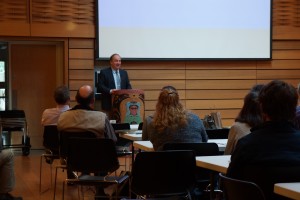 I would like to start off by thanking Beverley and everyone at the Centre for Early Childhood Research and Policy for inviting me here today and for organizing this wonderful conference. As Beverley pointed out, my name is Andrew Weaver and I’m the Member of the Legislative Assembly representing the riding of Oak Bay-Gordon Head — home to the University of Victoria.
I would like to start off by thanking Beverley and everyone at the Centre for Early Childhood Research and Policy for inviting me here today and for organizing this wonderful conference. As Beverley pointed out, my name is Andrew Weaver and I’m the Member of the Legislative Assembly representing the riding of Oak Bay-Gordon Head — home to the University of Victoria.
I have been in the Legislature for about two and a half years now, but before that I actually worked right here at UVic as a Faculty Member in the School of Earth and Ocean Sciences. In parallel with my endeavours in research, I’ve spent a good deal of time engaging the public in discussions about the importance of nature and our environment, and the detrimental path we are headed down if we don’t take action to reduce ongoing loading of the atmosphere with greenhouse gases that are causing global warming.
While it is easy to become disillusioned and worn out working in the field of climate science — seeing the path we’re headed down and fighting an uphill battle to try and make governments and policy makers see it too — it is our children and youth that inspire me — give me hope for the future — and keep me optimistic after so many years in this field.
In fact, one of my favourite parts about my role as MLA, is being able to go into schools and universities and speak to children and youth about our environment and the importance of civic engagement. Seeing their keen interest and appreciation for our natural environment and their desire to make our world a sustainable place is truly what inspires me in my daily work down in the legislature.
Because of this, I was very honoured when I was asked to provide opening remarks here today — I’m just disappointed I won’t be able to stick around to learn about the fantastic research that is being done in this area.
I was actually fortunate enough to experience a nature school program first-hand about a year and a half ago. I was invited by Savory Elementary School to be an “Eco Expert” for their “4 Seasons Eco School”. The program, which I believe was in its inaugural year when I visited, ran each Wednesday and provided all students with the opportunity to learn outside in Savory’s surrounding ecosystem, bringing in a new guest expert each week to guide the children.
I got to spend an entire day, from 8:30 in the morning to 2:30 in the afternoon, delivering a lesson plan to seven separate classes and engaging with every grade from Kindergarten to grade 6. To say that I was exhausted by the end of it would be an understatement, but it was also a truly unforgettable and inspiring experience — and helped to further my respect and appreciation for our teachers who do far more than I did, but on a daily basis.
Over the last decade as a scientist I’ve also had the privilege of working with school districts across Vancouver Island to install more than 150 weather stations on schools (Islandweather.ca for those who are interested), and to develop learning resources, in collaboration with teachers, to allow them to deliver their curriculum using state-of the art instrumentation and an authentic learning experience. Getting out of the ivory tower and into the community to discuss science, weather and our natural environment has been — to be perfectly frank — the single most satisfying and rewarding experience I have had as a scientist.
In today’s technology driven world, where young children are spending as much as eight hours a day interacting with screens — and often less than an hour a day actually outside – I firmly believe that providing children with the opportunity to experience “the wonders of nature” is one of the most important things we can do to help foster their development. While I am by no means an expert in the topic — you will hear from them later — I do know that there is a vast amount of research to demonstrate just how important time spent outdoors is to early development. Studies have shown that children who interact with nature on a daily basis are healthier, happier, more creative and less stressed than those who don’t.
And these benefits are not only felt in childhood. Researchers continue to develop a better understanding of the lasting impacts that early childhood experiences can have on our lives. Whether we remember the experience or not, and whether we are aware of magnitude of those experiences or not, they can stick with us throughout our entire lives. We carry them with us through our adolescent and teen years, into young adulthood and beyond. Developing an understanding and appreciation of nature at an early age will have a lasting effect on children.
And these benefits will not just be felt by the children fortunate enough to experience this type of learning environment. They will be felt by their peers, their families, their communities, and society as a whole. They will impact the way they interact with other people, the way that they view and interact with their environments — both built and natural, and the way that they engage in their future careers.
In a few decades, the children that we’re talking about today will be our teachers, our researchers, our scientists, our policy makers, and our government leaders. They will be making the decisions that influence our society, implementing the policies that protect our environment, and educating an entire future generation of children on the importance of our natural world. So the fact that you are all here today, discussing such an important initiative, is a truly inspiring sight to see!
Thank you again for having me here to speak today and enjoy the rest of the conference!
Celebrating youth in our community – Ruby Tang
This is the 22nd in our series of stories celebrating the outstanding accomplishments of youth in our community. These inspirational young adults are enriching our lives with their passion and commitment to the betterment of society.
Ruby Tang
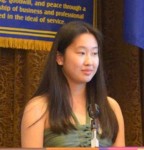 Ruby was one of a group of students who visited my MLA office in April of this year. Across BC similar groups were visiting MLA offices asking MLAs to commit to do what they can to stop attempts to increase thermal (as opposed to metallurgical) coal exports through BC ports (I‘ve written extensively about this in the past). It was the first time I had the opportunity to meet and chat with Ruby and I was delighted to sign the pledge (and subsequently mount it and hang it in my constituency office). I was also profoundly impressed by her commitment and passion.
Ruby was one of a group of students who visited my MLA office in April of this year. Across BC similar groups were visiting MLA offices asking MLAs to commit to do what they can to stop attempts to increase thermal (as opposed to metallurgical) coal exports through BC ports (I‘ve written extensively about this in the past). It was the first time I had the opportunity to meet and chat with Ruby and I was delighted to sign the pledge (and subsequently mount it and hang it in my constituency office). I was also profoundly impressed by her commitment and passion.
Ruby is a multi-talented young woman who excels at school and is working towards the betterment of her community in so many ways. She was born in Victoria, attended Willows Elementary School and Monterey Middle School before attending Oak Bay High School. This week Ruby starts her final year in the newly built Oak Bay High School.
Ruby loves languages and learning about diverse cultures. Her parents immigrated to Canada from mainland China (near Guangzhou in Canton Province) when they were young adults. Ruby has studied at the Victoria Chinese Public School and speaks Mandarin and Cantonese. She received academic awards every year from 2009 to 2014 and a Chinese Painting Award in 2011. She remains closely affiliated to the school through acting as a grade one teacher’s assistant and (starting this fall) as an assistant in the Chinese water colour painting class. In addition, Ruby helps teach and rehearse Chinese cultural dance to younger students, aiding them to prepare for performances including the Chinese New Year celebrations and the Victoria Day parade.
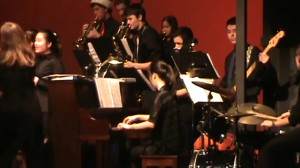 At the Victoria Chinese Public School, Ruby has taken a great interest in the history of Victoria’s Chinese community. She has been able to transcribe or transliterate from Chinese (Cantonese) to English and she helps out as a volunteer at the Royal BC Museum. Her volunteer duties have included doing research for the human history department at the Royal BC Museum.
At the Victoria Chinese Public School, Ruby has taken a great interest in the history of Victoria’s Chinese community. She has been able to transcribe or transliterate from Chinese (Cantonese) to English and she helps out as a volunteer at the Royal BC Museum. Her volunteer duties have included doing research for the human history department at the Royal BC Museum.
Ruby is a very accomplished musician. A student with the Victoria Conservatory of Music (VCM) since 2005, she has achieved the Royal Conservatory of Music (RCM) Grade 10 level in piano. She is currently working on achieving an Associate of the Royal Conservatory (ARCT) Diploma in piano performance. This is the highest academic standing for performance awarded by the Royal Conservatory. Included in her list of awards are the VCM Millicent Lavoy Piano Award (2014); the Hilda King RCM Theory Award (2013) and the VCM David Foster Piano Award (2011).
Ruby started learning to play the violin in Grade 5 and was in the School Districts’ Strings Program until Grade 10, enjoying many opportunities to perform at school concerts, during school tours, community performances and arts festivals.
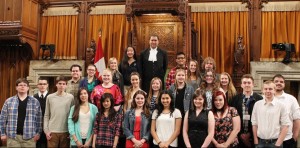 An exceptional student academically, Ruby has achieved a Grade Point Average of 5.0 with Distinction in Grades 9, 10 and 11 (averages above 90% each year). When we interviewed Ruby for this article, it was during the summer and she was attending summer school to complete English 12 – to get it done so there would be more time for the many activities Ruby will pursue in her graduating year. For example, she will be co-leading the Environment Club, participating in the Debate Club and continuing a project she is working on (and co-founded) with students from two other high schools called Victoria Youth Matters. The aim of Victoria Youth Matters is to “engage youth in politics and engage politicians in youth”. With a federal election coming in October, Ruby and the other co-founders will be holding all candidates forums for their local electoral ridings. The topics chosen would be based on a survey of youth’s understanding, interest and opinions on politics.
An exceptional student academically, Ruby has achieved a Grade Point Average of 5.0 with Distinction in Grades 9, 10 and 11 (averages above 90% each year). When we interviewed Ruby for this article, it was during the summer and she was attending summer school to complete English 12 – to get it done so there would be more time for the many activities Ruby will pursue in her graduating year. For example, she will be co-leading the Environment Club, participating in the Debate Club and continuing a project she is working on (and co-founded) with students from two other high schools called Victoria Youth Matters. The aim of Victoria Youth Matters is to “engage youth in politics and engage politicians in youth”. With a federal election coming in October, Ruby and the other co-founders will be holding all candidates forums for their local electoral ridings. The topics chosen would be based on a survey of youth’s understanding, interest and opinions on politics.
 Ruby has received many awards and accolades for her achievements at school and for her leadership and service to the broader community. In 2015, these have so far included being the Community Leadership and Philanthropy Pillar Representative at the Old School Farewell Ceremony, receiving the Oak Bay High Difference Maker Award, Best Overall Leadership Student Award and the Most Involved in the Community Award. In the community, Ruby received a District of Oak Bay Young Exceptional Star Award in 2014 and in 2015 she was the keynote speaker at the Young Exceptional Stars annual event.
Ruby has received many awards and accolades for her achievements at school and for her leadership and service to the broader community. In 2015, these have so far included being the Community Leadership and Philanthropy Pillar Representative at the Old School Farewell Ceremony, receiving the Oak Bay High Difference Maker Award, Best Overall Leadership Student Award and the Most Involved in the Community Award. In the community, Ruby received a District of Oak Bay Young Exceptional Star Award in 2014 and in 2015 she was the keynote speaker at the Young Exceptional Stars annual event.
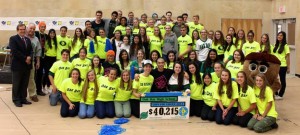 Ruby was Student Council Community Leader Representative in Grade 10 and Student Council Treasurer in Grade 11. Other school involvement includes the Cops for Cancer Campaign, Peer Tutoring and helping new students settle in at Oak Bay High. She has assisted the school counsellor by translating between English and Chinese (Cantonese and Mandarin) for new students (and their parents) from China. In Grade 12, Ruby will also lead the Amnesty International Club at her school.
Ruby was Student Council Community Leader Representative in Grade 10 and Student Council Treasurer in Grade 11. Other school involvement includes the Cops for Cancer Campaign, Peer Tutoring and helping new students settle in at Oak Bay High. She has assisted the school counsellor by translating between English and Chinese (Cantonese and Mandarin) for new students (and their parents) from China. In Grade 12, Ruby will also lead the Amnesty International Club at her school.
We are not sure where a person would find the time and energy to do more, but there is much more on Ruby’s plate. She has been very active in the Rotary Club’s International Action Club (known as Interact Club) at Oak Bay High. In Grade 11, as Interact Club President, she conducted meetings, organized events and worked on projects that benefited the school as well as projects that promote international goodwill. She was fortunate to attend a Rotary Youth Leadership Conference in Tacoma Washington in Grade 10, where she further developed leadership skills. In May 2015, Ruby took part in “Adventures in Citizenship”, an annual Interact program where 200 youth from across Canada travel to Ottawa to learn about the history of politics, explore Canadian identity and learn about our democratic institutions.
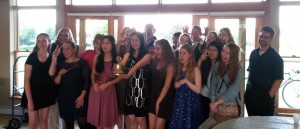 Ruby has been active in the community as a volunteer in many ways, including the Oak Bay Lodge “Memory Café”, where youth discuss topics of interest and share memories with senior citizens; the Victoria Dragon Boat Festival and the Oak Bay Tea Party. As I noted earlier, she has participated in the youth-led “Defend Our Future” action and she was part of the organizing team for the YesBC (Youth for Environmental Stewardship) 2015 Youth Climate Action Summit & Off the Grid Music Festival.
Ruby has been active in the community as a volunteer in many ways, including the Oak Bay Lodge “Memory Café”, where youth discuss topics of interest and share memories with senior citizens; the Victoria Dragon Boat Festival and the Oak Bay Tea Party. As I noted earlier, she has participated in the youth-led “Defend Our Future” action and she was part of the organizing team for the YesBC (Youth for Environmental Stewardship) 2015 Youth Climate Action Summit & Off the Grid Music Festival.
 To challenge herself, Ruby joined the girl’s school rugby team last year and found out that she loves the sport and she hopes to play in Grade 12. She has also been on the school’s badminton and cross country teams. She has a Bronze Cross in Lifeguard and Lifesaving from the Canadian Red Cross, including standard first aid and CPR training.
To challenge herself, Ruby joined the girl’s school rugby team last year and found out that she loves the sport and she hopes to play in Grade 12. She has also been on the school’s badminton and cross country teams. She has a Bronze Cross in Lifeguard and Lifesaving from the Canadian Red Cross, including standard first aid and CPR training.
In looking 10 years ahead, Ruby will have completed her post-secondary education and she hopes to be working on social justice issues in some way, possibly as a diplomat. When asked what makes her happy, she said “making a difference in people’s lives makes me happy”. She has been inspired by many people, including Mr. Alan York (recently retired as a counsellor at Oak Bay High) and Mr. Tim Bradshaw, Oak Bay High teacher, debate coach and sponsor of the school’s Rotary Interact club. Another person who has been an inspiration to Ruby is Winnifred Scott Wood, her past piano teacher.
Ruby is an outstanding ambassador for youth in so many ways. She’s highly motivated and organized and she takes on new challenges willingly. While she may accomplish so much and help so many, you would never know it from her quiet, modest and unassuming manner. Thank you, Ruby for all your contributions and hard work in your school and community. Oak Bay is a better place because of all that you do.


